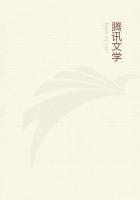Declining, as I do, to separate style in expression from style in the thought that informs it--for they who make such a separation can hardly know that style should be in the very conception of a phrase, in its antenatal history, else the word is neither choice nor authentic--I recognise in Mr.Lowell, as a prose author, a sense of proportion and a delicacy of selection not surpassed in the critical work of this critical century.Those small volumes, Among My Books and My Study Windows, are all pure literature.A fault in criticism is the rarest thing in them.I call none to mind except the strange judgment on Dr.Johnson: 'Our present concern with the Saxons is chiefly a literary one...Take Dr.Johnson as an instance.The Saxon, as it appears to me, has never shown any capacity for art,' and so forth.One wonders how Lowell read the passage on Iona, and the letter to Lord Chesterfield, and the Preface to the Dictionary without conviction of the great English writer's supreme art--art that declares itself and would not be hidden.But take the essay on Pope, that on Chaucer, and that on one Percival, a writer of American verse of whom English readers are not aware, and they prove Lowell to have been as clear in judging as he was exquisite in sentencing.His essay 'On a Certain Condescension in Foreigners' is famous, but an equal fame is due to 'My Garden Acquaintance' and 'A Good Word for Winter.' His talk about the weather is so full of wit that one wonders how prattlers at a loss for a topic dare attempt one so rich.The birds that nest in his syringas seem to be not his pensioners only, but his parishioners, so charmingly local, so intent upon his chronicle does he become when he is minded to play White of Selborne with a smile.And all the while it is the word that he is intent upon.You may trace his reading by some fine word that has not escaped him, but has been garnered for use when his fan has been quick to purge away the chaff of commonplace.He is thus fastidious and alert in many languages.You wonder at the delicacy of the sense whereby he perceives a choice rhyme in the Anglo-Norman of Marie de France or a clang of arms in the brief verse of Peire de Bergerac, or touches sensitively a word whereby Dante has transcended something sweet in Bernard de Ventadour, or Virgil somewhat noble in Homer.In his own use, and within his ownEnglish, he has the abstinence and the freshness of intention that keep every word new for the day's work.He gave to the language, and did not take from it; it gained by him, and lost not.There are writers of English now at work who almost convince us of their greatness until we convict them on that charge: they have succeeded at an unpardonable cost; they are glorified, but they have beggared the phrases they leave behind them.
Nevertheless Lowell was no poet.To accept his verse as a poet's would be to confess a lack of instinct, and there is no more grievous lack in a lover of poetry.Reason, we grant, makes for the full acceptance of his poems, and perhaps so judicial a mind as his may be forgiven for having trusted to reason and to criticism.His trust was justified--if such justification avails--by the admiration of fairly educated people who apparently hold him to have been a poet first, a humourist in the second place, and an essayist incidentally.It is hard to believe that he failed in instinct about himself.More probably he was content to forego it when he found the ode, the lyric, and the narrative verse all so willing.They made no difficulty, and he made none; why then are we reluctant to acknowledge the manifest stateliness of this verse and the evident grace of that, and the fine thought finely worded? Such reluctance justifies itself.Nor would I attempt to back it by the cheap sanctions of prophecy.Nay, it is quite possible that Lowell's poems may live; I have no commands for futurity.Enough that he enriched the present with the example of a scholarly, linguistic, verbal love of literature, with a studiousness full of heart.















